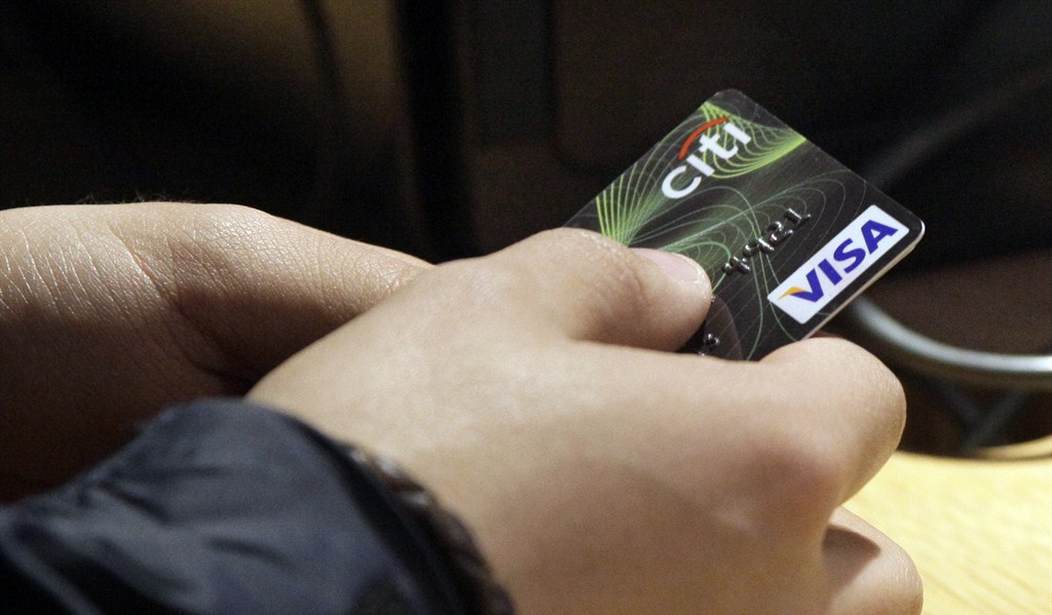We are being assured that the Federal Reserve is planning to implement the first interest rate cut in quite a while this week. So does that mean that the crisis has passed? Is this the "soft landing" that the Biden administration kept promising us over the past several years after Biden's policies drove rates skyward as soon as Donald Trump left office? According to many bank executives interviewed by the Wall Street Journal last week, you might want to hold off on smashing open that piggy bank for a while longer. They are observing worrisome signs that everyday Americans are still struggling to pay their bills on a month-to-month basis, and that is never a sign of a healthy economic recovery. But why would the Fed consider a rate cut if the conditions on the ground don't appear to merit it? Could politics be involved?
Signs that Americans are struggling to keep up with their bills are setting off alarms on Wall Street.
Shares of consumer-lending companies slid this past week after executives raised warnings about lower-income borrowers who are struggling to make payments. Dour remarks from banking executives at the Barclays banking conference rattled investors, who were already on edge about the health of the U.S. economy.
Investors have been on high alert for any clues that a recession is in store after two years of higher interest rates. The Federal Reserve is expected to start lowering rates at its meeting this coming week, but some investors fear it might have waited too long.
One of the first and biggest red flags that the banks are keeping an eye on is the rate of credit card payments that are being made late or simply defaulting. It's true that spending is rising in some sectors, which is being seen primarily among the banks' more affluent customers. Middle-class Americans far too often fall into the trap of paying for things like groceries and monthly utility bills using their credit cards. Credit card debt falls into default at a significantly higher rate than other forms of loans.
Another key category being monitored is that of automobile loan payments. For all of 2024 thus far, late payments on car loans have increased rather than decreased. Late payments and "charge-offs" (where banks abandon billing for payments that the consumer is unlikely to be able to make) have both been on the rise. All of these delays and losses cut into the banks' bottom lines, making any sort of return to the "normalcy" of the pre-pandemic years less and less likely. Ally, a major auto lender, reported that their stock fell 18% on Tuesday of last week and has yet to recover.
As a result, the average interest rate for car loans has not been decreasing in a fashion one might expect prior to a rate cut by the Federal Reserve. Average interest rates on car loans remained at 8.2% in May of this year. That's still considerably higher than the 5.3% rate reported in 2019. Roughly 8% of auto loans turned delinquent this year. That is the highest delinquency rate seen in over a decade.
Other red flags are being reported by the usual financial outlets that follow such trends, suggesting that the average consumer is still far from being out of the woods. So with all of these warning signals flashing, why would Janet Yellen be seriously discussing a rate cut now? Prematurely slashing rates before the underlying health of the economy has been reestablished risks slamming the brakes on any progress that's being observed. Most of the analysts who were interviewed for this report seemed to agree that we would want to see a sustained period of recovery lasting at least six months and getting most late payments and account delinquencies back to the levels seen prior to the huge spike under the Biden administration. Color me cynical for suggesting the idea, but waiting another six months would put us well past the election and that could be too late to benefit the Democrats. Doing it now might prop up confidence among consumers at a time when Kamala and the Democrats are desperately in need of some good news. They can always worry about picking up the pieces next year, I suppose.








Join the conversation as a VIP Member